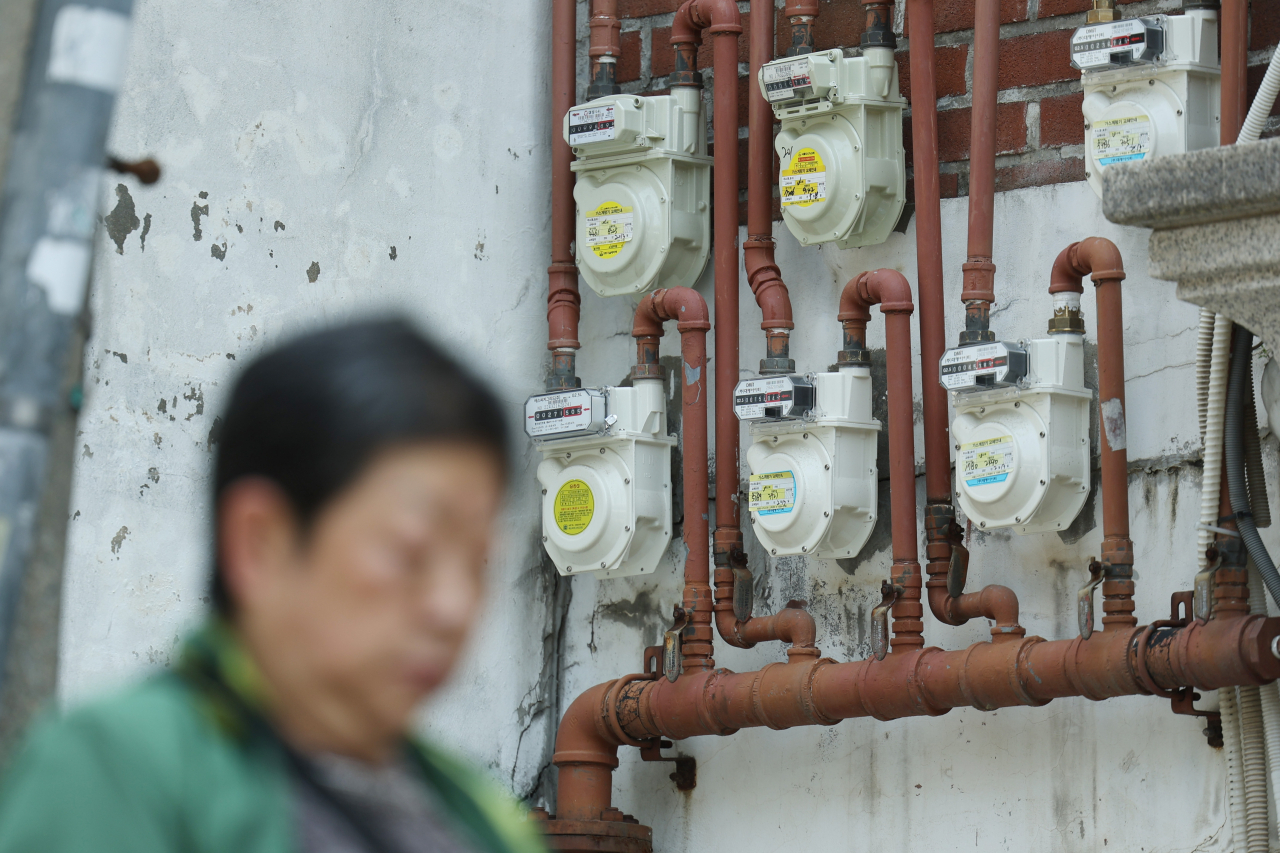 |
This photo shows gas meters installed at a residential area in Seoul, Monday. (Yonhap) |
Electricity rates and gas prices in South Korea will increase by 5.3 percent from Tuesday, to ease the financial burden of cash-strapped state-run energy companies.
The electricity rate will go up by 8 won ($0.006) per kilowatt-hour and the gas rate by 1.04 won per megajoule, the government announced Monday. The hiked rates take effect from Tuesday, but will not be applied retroactively.
This means that a four-person household that uses an average amount of electricity and gas will have to pay around 3,000 won and 4,400 won more per month, respectively.
The decision to finalize the second-quarter utility rates had been due to come in March, but was postponed for more than a month on concern of rising prices amid the economic slowdown.
“Though we have continuously adjusted the prices of electricity and gas from last year to earlier this year, the cause of increase has not been fully resolved," Minister of Trade, Industry and Energy Lee Chang-yang said Monday at a briefing held for the announcement of the price hikes.
"It is difficult to overcome the crisis with solely the efforts of Korea Electric Power Corp. and Korea Gas Corp.," Lee said, referring to the state-run companies. "This is to normalize their operation and secure the sustainability of energy supply."
Lee emphasized that both companies are suffering from hikes in global energy prices. Kepco's cumulative deficit from 2021 mounts to 38.5 trillion won. Kogas had about 11.6 trillion won in uncollected payments as of end-March, referring to the amount of natural gas imports that were not covered by gas bills.
Both Kepco and Kogas have been pressured to maintain the current rates despite the surge in supply prices after the Russia-Ukraine war.
Prior to the decision, the two companies announced reform measures to overcome the swelling deficit, while Kepco CEO Cheong Seung-il offered his resignation to take responsibility.
With the increase in power bills, the government said it would roll out support measures to protect economically vulnerable households.
It will hold off the increase for basic stability recipients and those in the second-lowest income bracket for more than a year on the condition that their usage remains under the average utility amount.
Additionally, it will expand its energy voucher scheme, increasing the total amount by 7.5 percent, as well as the range of recipients.
The hike in utility prices is expected to affect inflation. Korea’s consumer price index has been showing signs of recovery in recent months, increasing by 3.7 percent on year in April. It was the first time in 14 months for the figure to fall into the 3 percent range.
With the hike in utility charges, however, the inflation rate could rebound, further shifting away from the Bank of Korea’s target 2 percent rate.
Some are calling for further measures to prepare for a potential energy crisis.
The Korea Chamber of Commerce and Industry said the price hikes were “unavoidable” considering the respective financial states of Kepco and Kogas.
"Efficient energy use and a cut down in consumption are important, considering the carbon neutrality (agenda), and the instability of energy supply and demand. Control on energy demand and more investments in energy-related facilities are needed along with the price adjustments,” the KCCI said in a press release Monday.







![[Weekender] Korea's traditional sauce culture gains global recognition](http://res.heraldm.com/phpwas/restmb_idxmake.php?idx=644&simg=/content/image/2024/11/21/20241121050153_0.jpg)